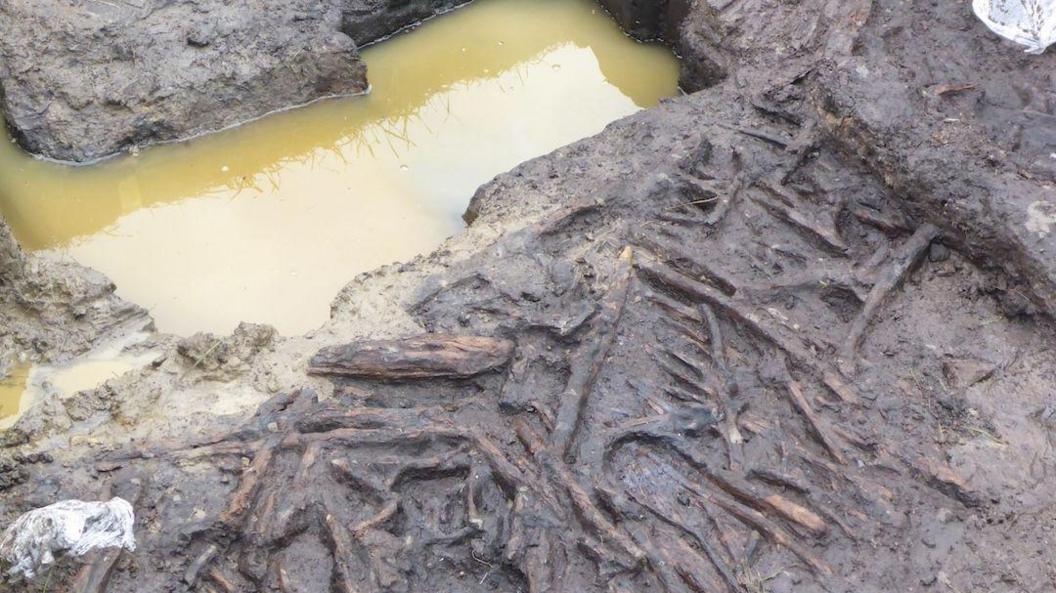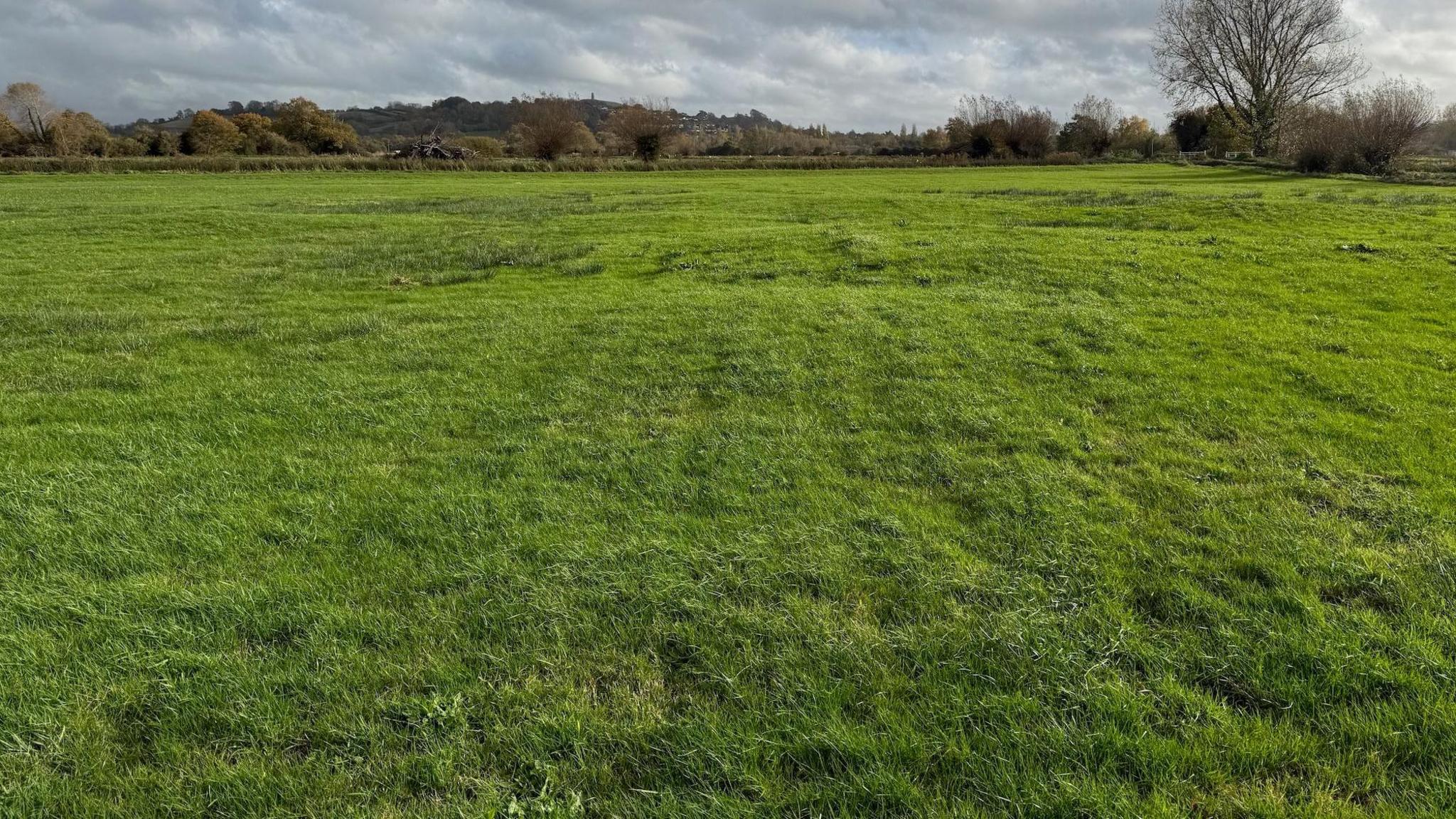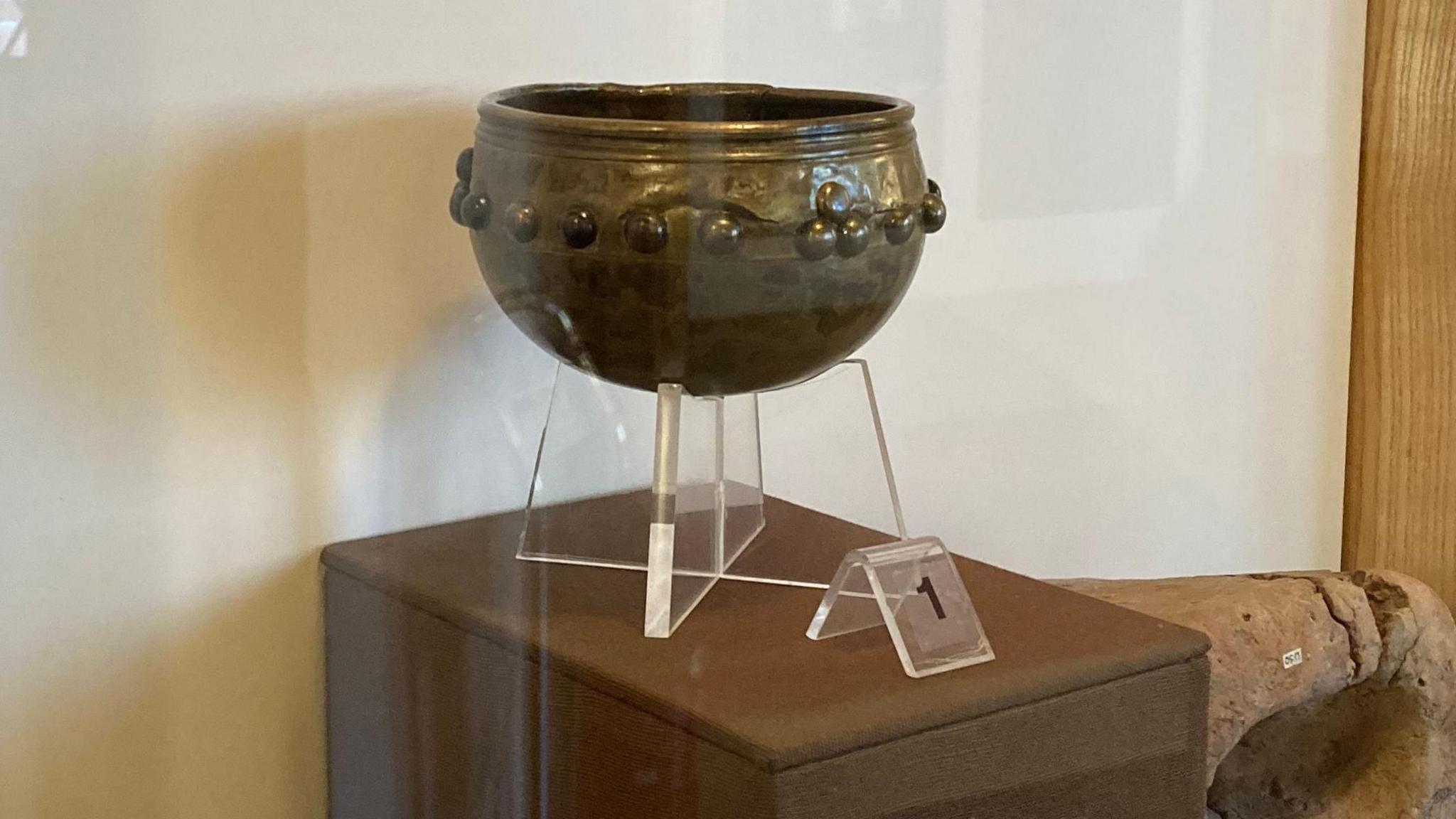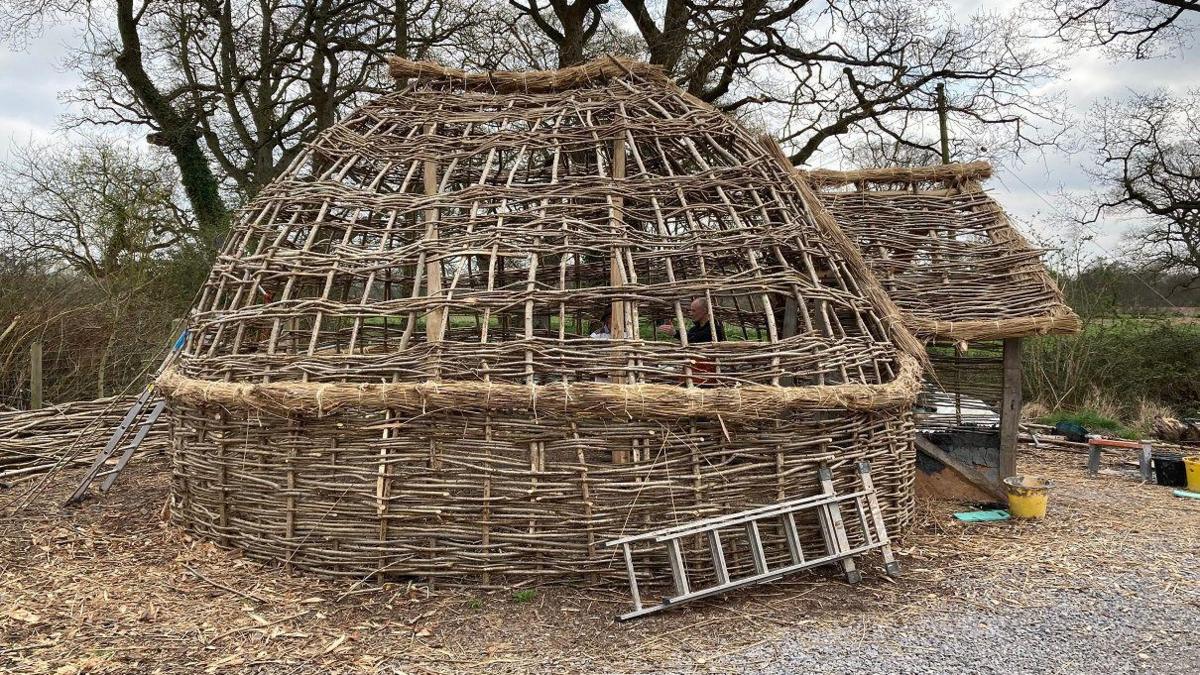Ancient settlement may be lost to climate change

The Glastonbury Lake Village is preserved in the marsh land
- Published
An ancient wetland site which has been in place for almost 2,000 years is now under threat, due to the warm weather.
Glastonbury Lake Village is an Iron Age settlement preserved by water and peat on the Somerset Levels.
But the dry summer has lowered the local water table, leading to fears the timbers could begin to degrade.
Dr Richard Brunning, a senior historic environment officer with the South West Heritage Trust said unless something is done, "the site will gradually be lost over time and only the deepest elements will survive".
The small settlement, which is believed to have been occupied for around 100 years, was uncovered in 1898 and is thought to be one of the best preserved Iron Age settlements ever discovered in the UK.
Philip Brewin, an ecologist for the Somerset Drainage Board who carried out research into the village, said: "Over time we have drained the former marsh and it's now used for other purposes, which means that the water table can get quite low.
"If it gets low enough the timbers are exposed to oxygen, then they will start to rot and they'll be lost forever."

The settlement is hidden under marsh land - which keep it preserved
Dr Brunning said the village is an "incredibly important site", adding: "We're going to get more extreme wetter winters and also more extreme dry summers, with more prolonged periods of drought - so we know over the coming decades the situation's going to get worse rather than better."
He also said it will be hard to isolate the site, given its connected to other fields with different uses.
"We know what's coming, but there's not a there's not an easy solution to that there's only difficult ones."
Get in touch
Tell us which stories we should cover in Somerset
Follow BBC Somerset on Facebook, external and X, external. Send your story ideas to us on email or via WhatsApp on 0800 313 4630.
Related topics
- Published21 June

- Published4 April
